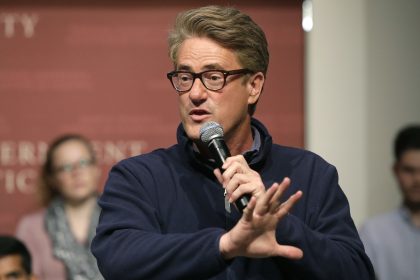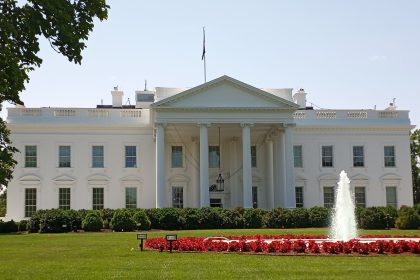FTC Votes to Ban Noncompete Agreements

WASHINGTON — The Federal Trade Commission voted 3-2 on Tuesday to ban noncompete agreements, a decades-old vehicle that has prevented untold millions of employees from working for a competitor or starting their own competing businesses after leaving a job.
The agency’s proposed final rule is scheduled to go into effect 120 days after it’s published in the Federal Register.
But the timeline for the move — which came on the same day the Labor Department raised the salary threshold for overtime eligibility, extending overtime protections to millions of workers — could change dramatically if, as expected, the regulation is challenged by pro-business groups in court.
In its preamble, the rule states that noncompete agreements are an unfair method of competition — making them a violation of Section 5 of the FTC Act — and bars companies from entering into them after its effective date.
If and when it does actually go into effect, the ban on noncompete agreements would apply to all workers, including senior executives, a term the FTC applies to anyone making more than $151,164 annually who is also in a “policy-making position.”
When it comes to existing noncompete agreements, the final rule adopts a different approach for senior executives than for other workers.
For senior executives, existing noncompetes can remain in force. Existing noncompetes with workers other than senior executives are not enforceable after the effective date of the final rule.
The FTC estimates that about 18% of the U.S. workforce is currently covered by noncompete agreements, and that fewer than 1% of workers would be classified as senior executives under the final rule.
President Joe Biden has had noncompete agreements in his crosshairs since at least his 2023 State of the Union address.
On Tuesday, he took to social media to applaud today’s actions at the FTC and the Labor Department, calling them “two big steps to get American workers a better deal.”
“The FTC is cracking down on ‘noncompete agreements,’ contracts that employers use to prevent their workers from changing jobs even if that job will pay a few dollars more, or provide better working conditions.
“Workers ought to have the right to choose who they want to work for,” the president said.
“Second, for millions of workers who make less than $58,656, the Labor Department is saying you have the right to overtime protections. If you work extra hours, you deserve extra pay,” he said.
In a video interview posted to the FTC’s social media pages shortly after the vote, Lina Khan,
chairperson of the Federal Trade Commission, said that about one-in-five working Americans is currently bound by a noncompete agreement and that the vast majority are just “ordinary people.”
“So we’re talking about fast food workers, security guards, nurses, veterinarians, journalists and engineers, people who range across sectors of the economy and across income levels,” she said.
The primary reason for noncompetes, she said, “is to keep wages low.”
She predicted that once unshackled from noncompete clauses, the wages for the average worker will go up by roughly $529 a year.
“Collectively, that means tens of billions or perhaps even hundreds of billions of dollars in wages will be going back to workers,” Khan said.
She went on to explain that this bump in wages would occur because workers would no longer be stuck in one place, and would actually be able to switch jobs when a better opportunity arises.
The current way of doing things is bad for workers because it prevents them from making such changes in their lives, she said, adding that it is also bad for the workers who would have been hired to take their place.
“Because of noncompetes there is less churn in the economy overall, there’s less dynamism, and that means wages are lower than they should be,” Khan said.
Among those thrilled by the move was the American Federation of Labor and Congress of Industrial Organizations, which commended the FTC and Khan for “finalizing a strong rule to ban these exploitative practices and level the playing field for American workers.”
Far less happy was Suzanne Clark, president and CEO of the U.S. Chamber of Commerce, who vowed to see the agency in court over Tuesday’s vote.
“The Federal Trade Commission’s decision to ban employer noncompete agreements across the economy is not only unlawful but also a blatant power grab that will undermine American businesses’ ability to remain competitive,” Clark said.
“Since its inception over 100 years ago, the FTC has never been granted the constitutional and statutory authority to write its own competition rules. Noncompete agreements are either upheld or dismissed under well-established state laws governing their use,” she continued. “Yet, today, three unelected commissioners have unilaterally decided they have the authority to declare what’s a legitimate business decision and what’s not by moving to ban noncompete agreements in all sectors of the economy.
“This decision sets a dangerous precedent for government micromanagement of business and can harm employers, workers and our economy,” Clark said. “The chamber will sue the FTC to block this unnecessary and unlawful rule and put other agencies on notice that such overreach will not go unchecked.”
Dan can be reached at [email protected] and @DanMcCue






















